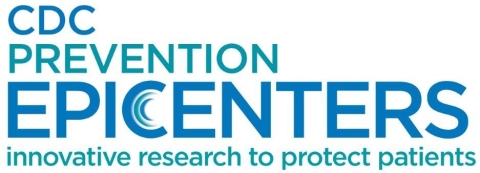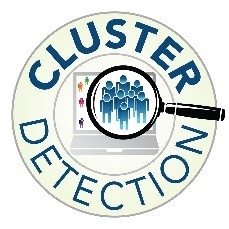
The CDC Prevention Epicenters Program unites academic healthcare experts across the United States with the goal of enhancing public health knowledge and improving healthcare quality through innovative research focusing on prevention of healthcare-associated infections (HAIs), antibiotic resistance, and other healthcare-associated adverse events. Harvard Pilgrim Health Care Institute (HPHCI) has served as a CDC Prevention Epicenter site since the program began in 1997. Click here to learn more about the CDC Prevention Epicenters program.
During the current 5th funding cycle of the program, the Harvard Epicenter is leading multiple research projects investigating the following topics:
- improving the characterization and management of sepsis using EHR data and detailed chart review
- understanding and reducing non-ventilator hospital-acquired pneumonia (NV-HAP) through chart review and a large-scale quality improvement initiative in the HCA Healthcare hospital system
- decreasing unnecessary antibiotic usage within a pilot randomized clinical trial
- preventing Clostridioides difficile (C. difficile) infections using a pre-emptive prevention bundle for high-risk patients
Selected past projects
Selected past projects of the Harvard Epicenter (and related projects funded by other federal agencies) are highlighted below and include pragmatic cluster randomized trials related to prevention of Staphylococcus aureus infections, implementation of an outbreak detection system and standardized response protocol, and projects related to sepsis, non-ventilator hospital-acquired pneumonia (NV-HAP) and COVID-19 surveillance and prevention.

SWAP OUT and Related Decolonization Trials
(PIs: Susan Huang, MD, MPH, Richard Platt, MD, MSc)
Intensive care units (ICUs) have one of the highest rates of healthcare-associated infections due patients’ severity of illness and frequent use of medical devices. The previously conducted REDUCE MRSA Trial showed that ICUs using chlorhexidine (CHG) antiseptic for routine daily bathing and mupirocin for nasal decolonization of all admissions experienced a significant reduction in (MRSA) clinical cultures and all-cause bloodstream infections. This trial influenced national practice. An enhanced protocol was developed that provides instructions for implementing universal decolonization in adult intensive care units. See Agency for Healthcare Research and Quality link for Universal ICU Decolonization: An Enhanced Protocol. https://www.ahrq.gov/hai/universal-icu-decolonization/index.html

CLUSTER
(PI: Meghan Baker, MD,ScD)
Over 36 million patients are hospitalized each year in the U.S. with the expectation of safe medical care. Nevertheless, healthcare-associated infections are a leading cause of preventable morbidity and mortality, and numerous hospital outbreaks are reported each year. The Joint Commission requires hospital infection prevention programs to perform outbreak detection. However, there are no standardized, validated outbreak detection methods or response strategies.
CDC National Sepsis Survey using EHR Data
(PIs: Michael Klompas, MD, MPH; Chanu Rhee, MD, MPH)
Sepsis is a leading cause of death, disability, and cost worldwide. In light of the high burden of sepsis and ongoing high-profile initiatives to improve sepsis detection and care, there is a critical need for better measures of sepsis incidence, trends, and outcomes. The increasing national uptake of electronic health record (EHR) systems allows for the possibility of tracking sepsis using objective clinical markers of infection and organ dysfunction rather than subjective and changing administrative code assignments. The Harvard Epicenter developed preliminary EHR-based surveillance definitions for sepsis and demonstrated that they have superior sensitivity, similar positive predictive value, and more stable sensitivity over time compared to definitions based on administrative claims data. In this project, Harvard extended this work by applying an optimized EHR-based definition to a broad national network of hospitals from 7 different datasets in order to generate accurate and generalizable estimates of sepsis burden and epidemiology. These estimates are frequently cited by CDC in their statistics of the national burden of sepsis, and the definition developed in this study led to CDC’s Adult Sepsis Event toolkit.
Non-Ventilator Hospital-Acquired Pneumonia (NV-HAP) Projects
(PI: Michael Klompas, MD MPH)
COVID-19 Projects
(PIs: Richard Platt, MD MSc; Susan Huang, MD MPH; Michael Klompas, MD MPH; Chanu Rhee, MD MPH)
Related Links
CDC Prevention Epicenter Program
Principal Investigator: Richard Platt, MD, MSc, Susan Huang, MD, MPH